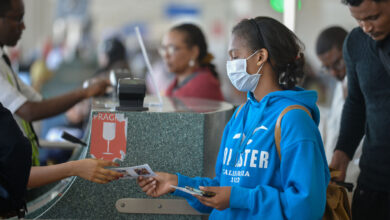
The Africa Centres for Disease Control (Africa CDC) on Tuesday said it is reviewing its guidance on the Oxford-AstraZeneca coronavirus vaccine after several European nations suspended its use amid concerns about possible adverse side effects, reported Africa News.
Many nations including Germany, France, Italy, Spain, Austria, Bulgaria, Romania, Estonia, Lithuania, Luxembourg, Latvia, Denmark, Norway and Iceland have suspended the Oxford-AstraZeneca vaccine following reports of several suspected deaths from clotting after inoculation.
“The AstraZeneca vaccine was seen to be safe and efficacious and we would need to review the data. We should guide the response with strong science and evidence,” Africa CDC Director John Nkengasong said in an interview with Bloomberg TV on Tuesday.
Nkengasong said that the Africa CDC, the specialized healthcare agency of the African Union (AU) Commission, will be convening an emergency meeting on Tuesday afternoon with all the experts across the continent to look at the data and provide appropriate guidance to the African continent.
Notably, many African countries are currently relying on the AstraZeneca vaccine as it is cheaper and easier to store. Under the WHO-led Covax initiative, around 14.5 million doses have been delivered to African countries.
The Democratic Republic of Congo (DRC) is the only African country to postpone the start of its AstraZeneca vaccination campaign over blood clot fear. The DRC received 1.7 million doses of the AstraZeneca vaccine and was due to start its vaccination drive on Monday.
Meanwhile, health authorities in Uganda and Nigeria said they don’t have any doubt on the vaccine’s safety.
The World Health Organization (WHO) said there is no evidence of a link between the vaccine and the blood clot but is reviewing the situation. The Anglo-Swedish pharmaceutical giant AstraZeneca insists the vaccine is completely safe and that no evidence exists of a higher risk of blood clots.






